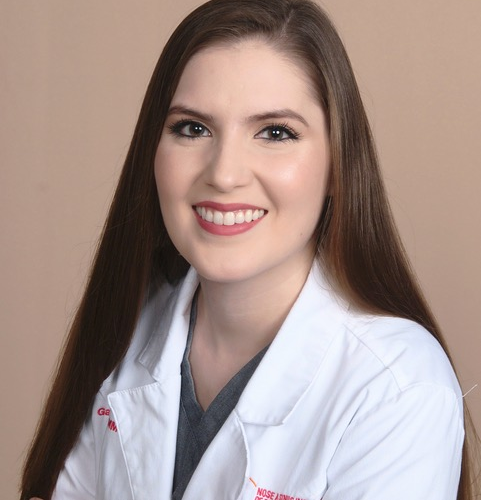A Day in the Life of a Physician Assistant
An Interview: Ana Galvan, PA-C
When it comes time to seek medical care for any ENT related issues, there are some key factors that everyone considers: convenience, experience, skill and expertise, and bedside manner to name a few. What many are less likely to consider is whether you should see a physician or a physician assistant (PA). Many patients are pleasantly surprised to learn the full scope of practice that PAs are able to provide and the increasing number of benefits they bring to healthcare.
Let’s meet Ana Galvan, MMS, PA-C. She joined her current practice in 2018, after graduation. Ana is certified by the National Commission on Certification of Physician Assistants (NCCPA). She is a fellow of the Society of Physician Assistants in Otorhinolaryngology / Head & Neck Surgery (SPAO-HNS), the Florida Academy of Physician Assistants (FAPA), and the American Academy of Physician Assistants.

Tell us a little about yourself, which PA program you graduated from and when you graduated.
I was born in Mexico, but I mostly grew up in Boca Raton, Florida. I attended the University of Florida for undergraduate and I attended Nova Southeastern University in Fort Lauderdale for PA school. I graduated in 2018.
What is your current specialty? Why did you choose this specialty?
I work in otolaryngology. I did one of my elective rotations in otolaryngology early on during clinical year and loved it, so I ended up choosing ENT again for my second elective rotation. I enjoy the variety of cases and subspecialties within ENT and having the ability to do many procedures.
What type of environment do you work in (hospital, clinic, administration, or a mix)?
I work in a clinic which is set up to do in-office surgeries under general anesthesia.
What is your schedule like? Do you work Monday through Friday, weekends, holidays, night shifts?
I work Monday through Friday. I usually get to work around 7:30 am and leave between 5:30 – 6:30 PM, and sometimes continue charting at home. I set up patients for surgery once a week, so I arrive at 5:00 AM on those days. No weekends or night shifts.
Do you take call?
I take call every other week. I alternate with the other PA in our office. It is phone-call based, usually to answer questions for post-operative patients.
Describe a typical day like for you? Do you start in a clinic or hospital setting, do you stay there for the entire day? What time do you start and finish?
I start seeing patients at 8 AM and the last scheduled patient is around 3:30 AM. The rest of the day, I am reviewing labs and test results, answering messages, calling patients, and charting notes. I run my own patient schedule; I typically see 10 to 15 patients per day including new patients, follow-ups, pre-op visits, post-op visits. As I mentioned, once a week my schedule is blocked to assist in setting up patients for surgeries that includes pre-op testing, vitals, IV placement and in post-anesthesia care unit (PACU) to monitor and recover them after their surgeries. I think this is less common in general for PAs to only manage patients in the PACU, in many other practice locations, the PA is first-assist during surgery. So, it just depends on the needs of the practice.
How autonomous are you, what types of things do you involve your supervising physician for and what do you do on your own? Is this typical for your specialty or more specific to your situation?
In a normal day I work pretty autonomously. The patients on my schedule I see completely on my own and I diagnose and treat them. If it is something that I am not sure about or needs urgent attention, I may bring in one of my collaborating physicians into the room, but this only happens a few times per year. If it is non-urgent but it looks like it could start to get complicated or it’s a post-op complication, I will have them follow up with the surgeon the next week.
Do you currently participate in any administrative tasks or have a leadership position, formal or informal? Do you think these augments or hinder your other responsibilities?
I don’t participate in any regular administrative tasks. I give a lecture annually for PAs during the Network of Florida Otolaryngology conference. Before COVID-19 we had a lot of medical students and pre-professional students shadow in the office. We usually have one or two PA students complete their ENT rotation in our office and we see many patients together.
What advice would you give to a PA who is considering working in your specialty?
Because PAs are trained as generalists, you will have to do a lot of research and reading on your own to better understand the specialty. It takes a lot of practice before you get truly comfortable doing procedures.
Is there anything else you’d like to add?
They are probably overprescribing antibiotics when in fact many conditions in ENT are due to inflammation.








